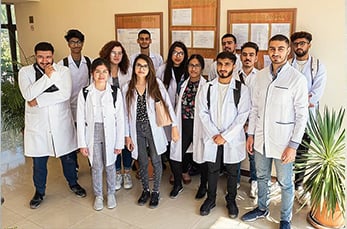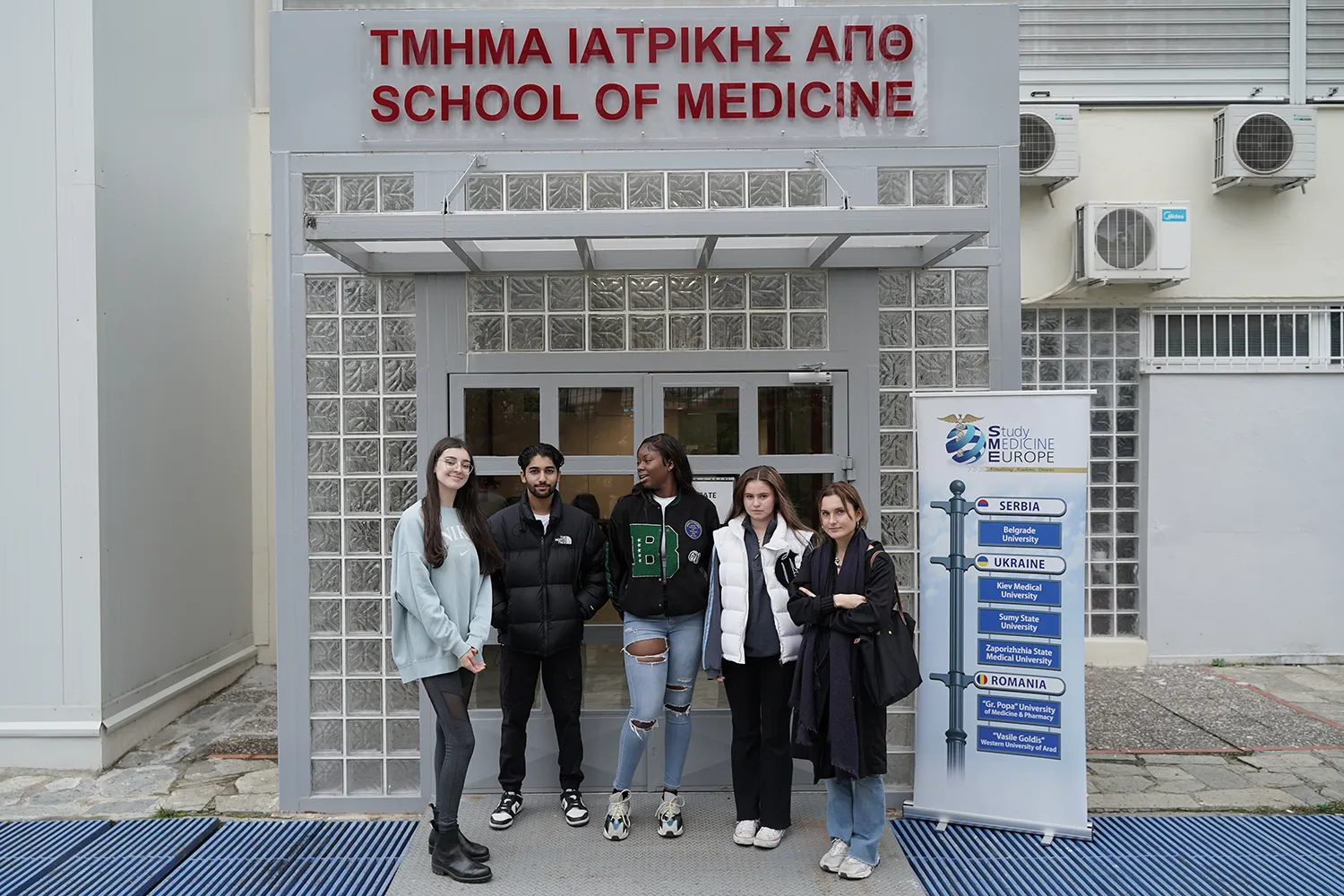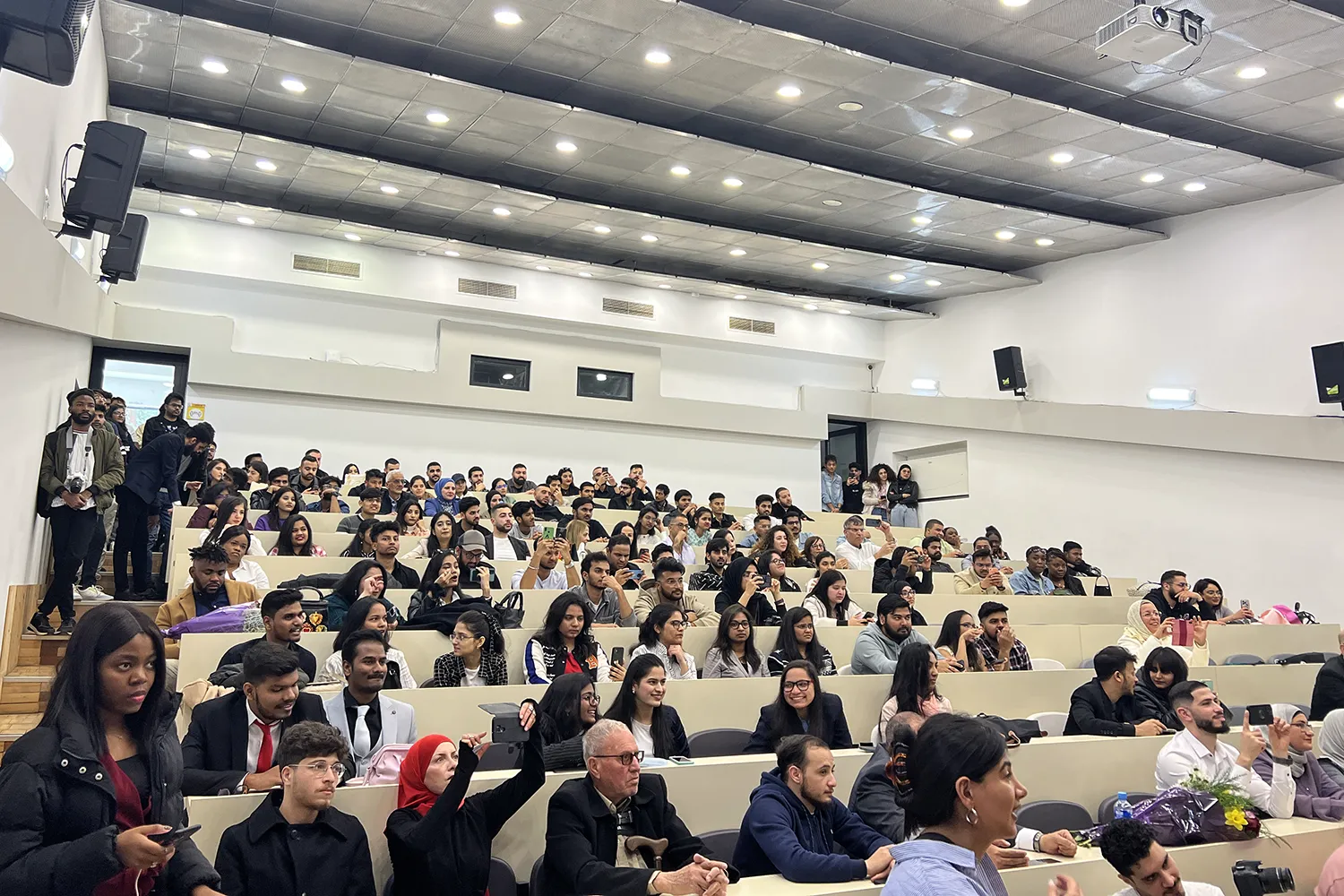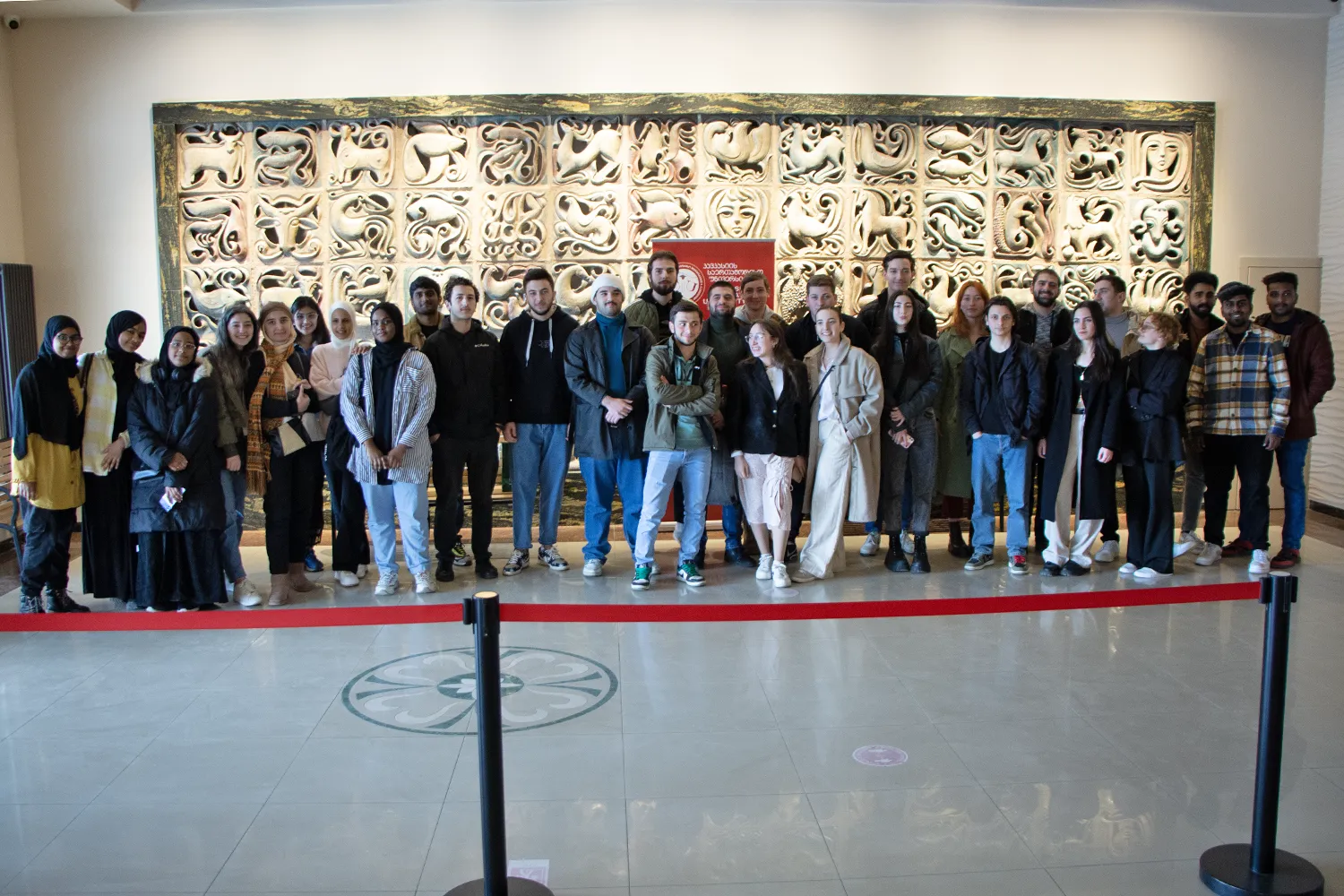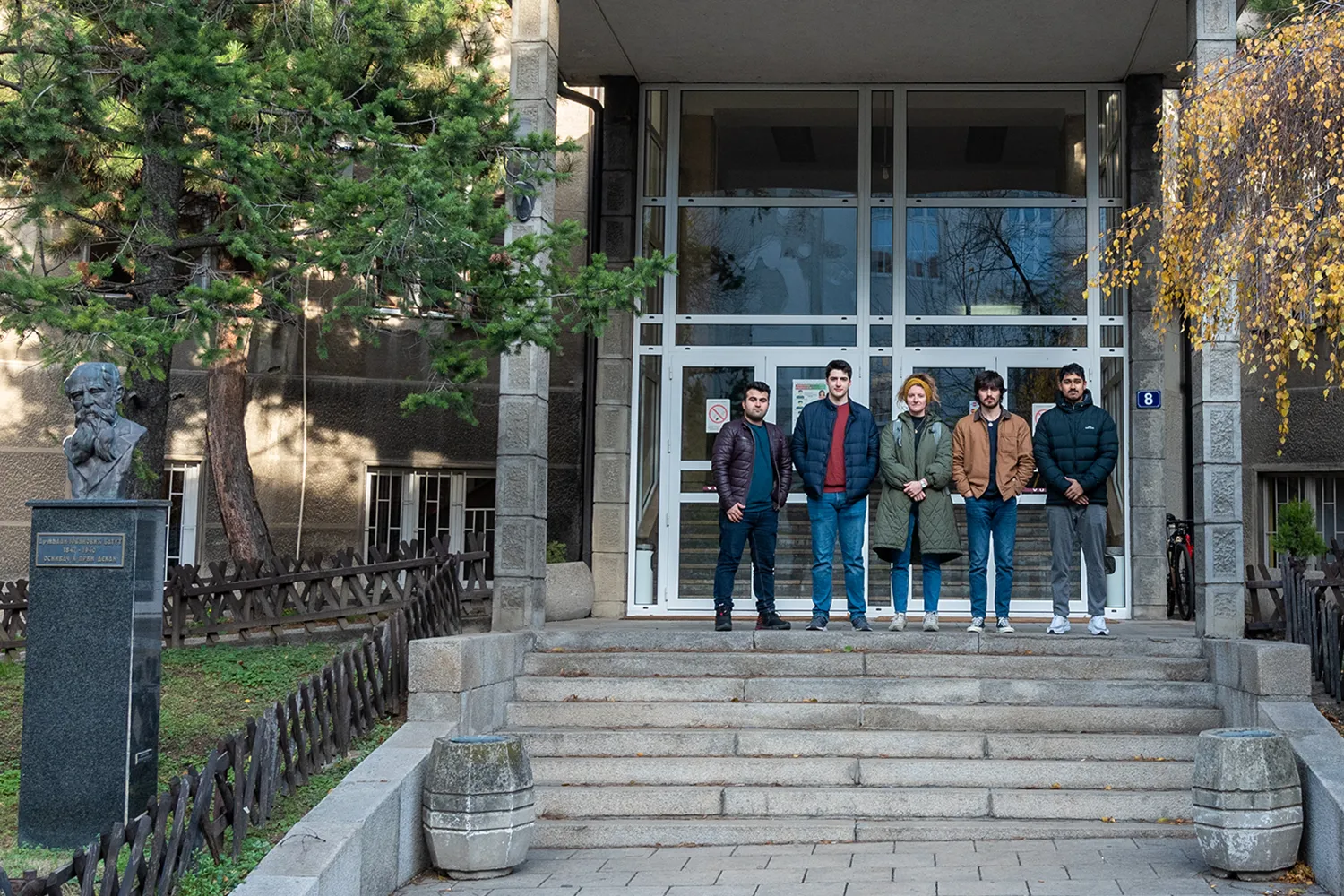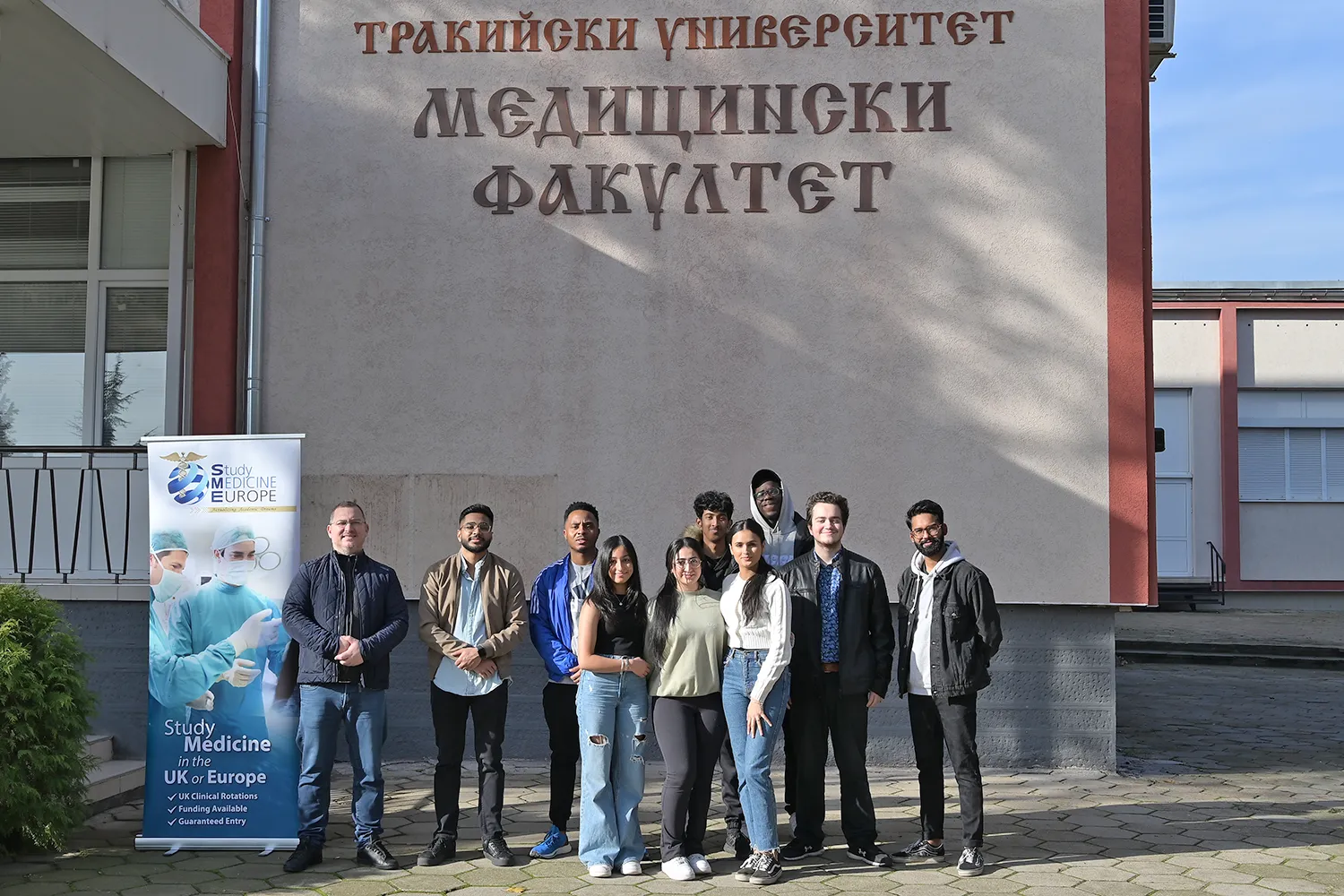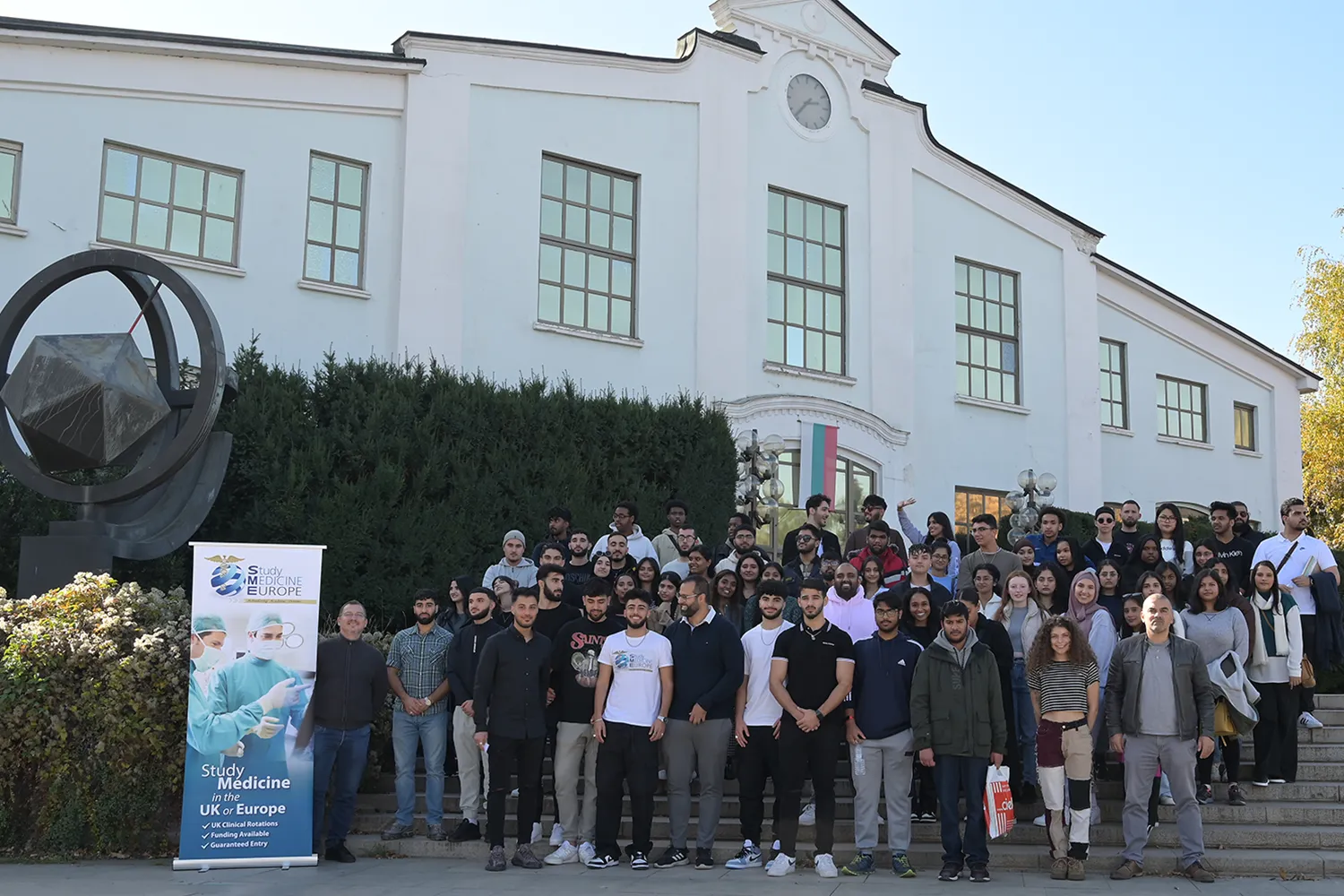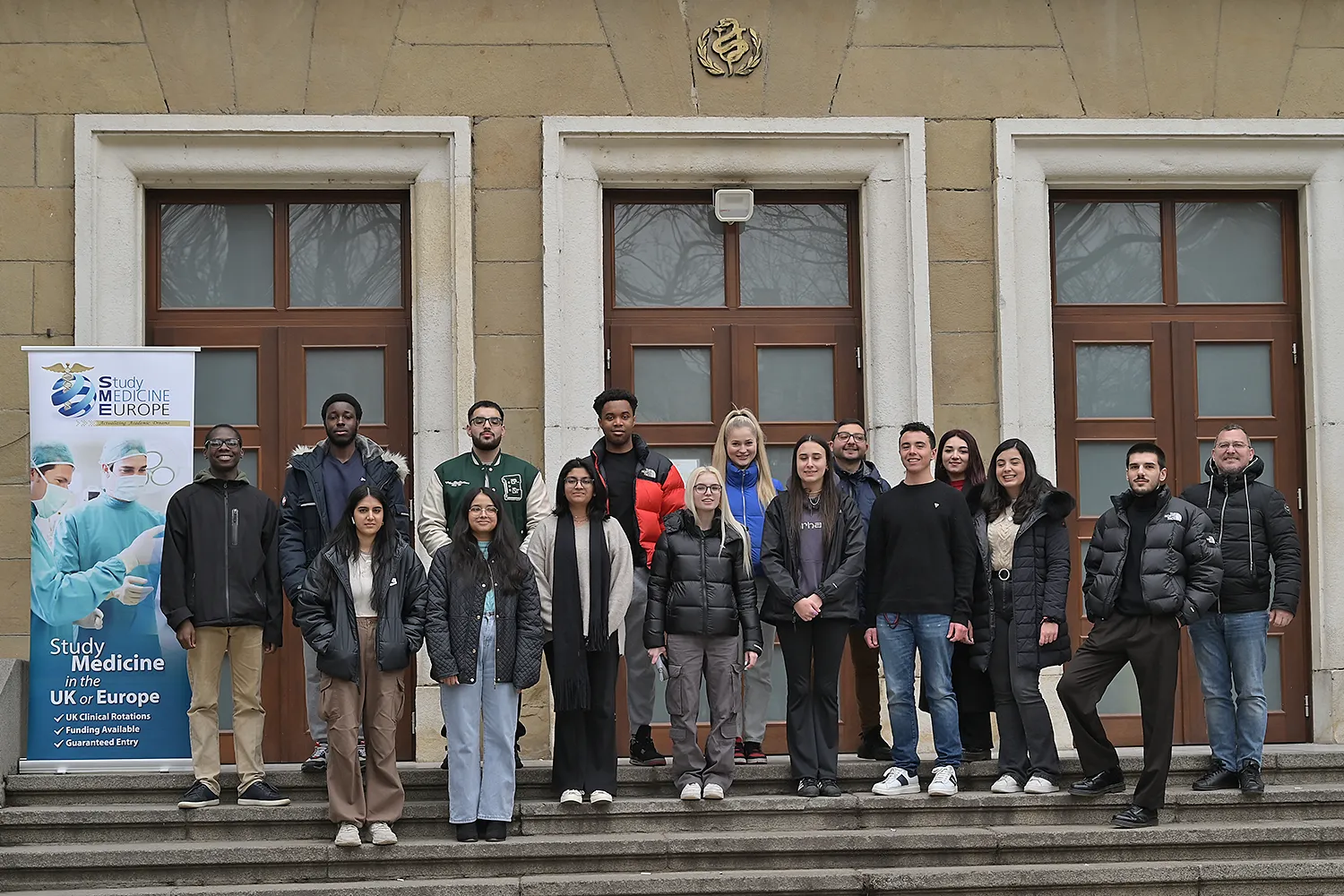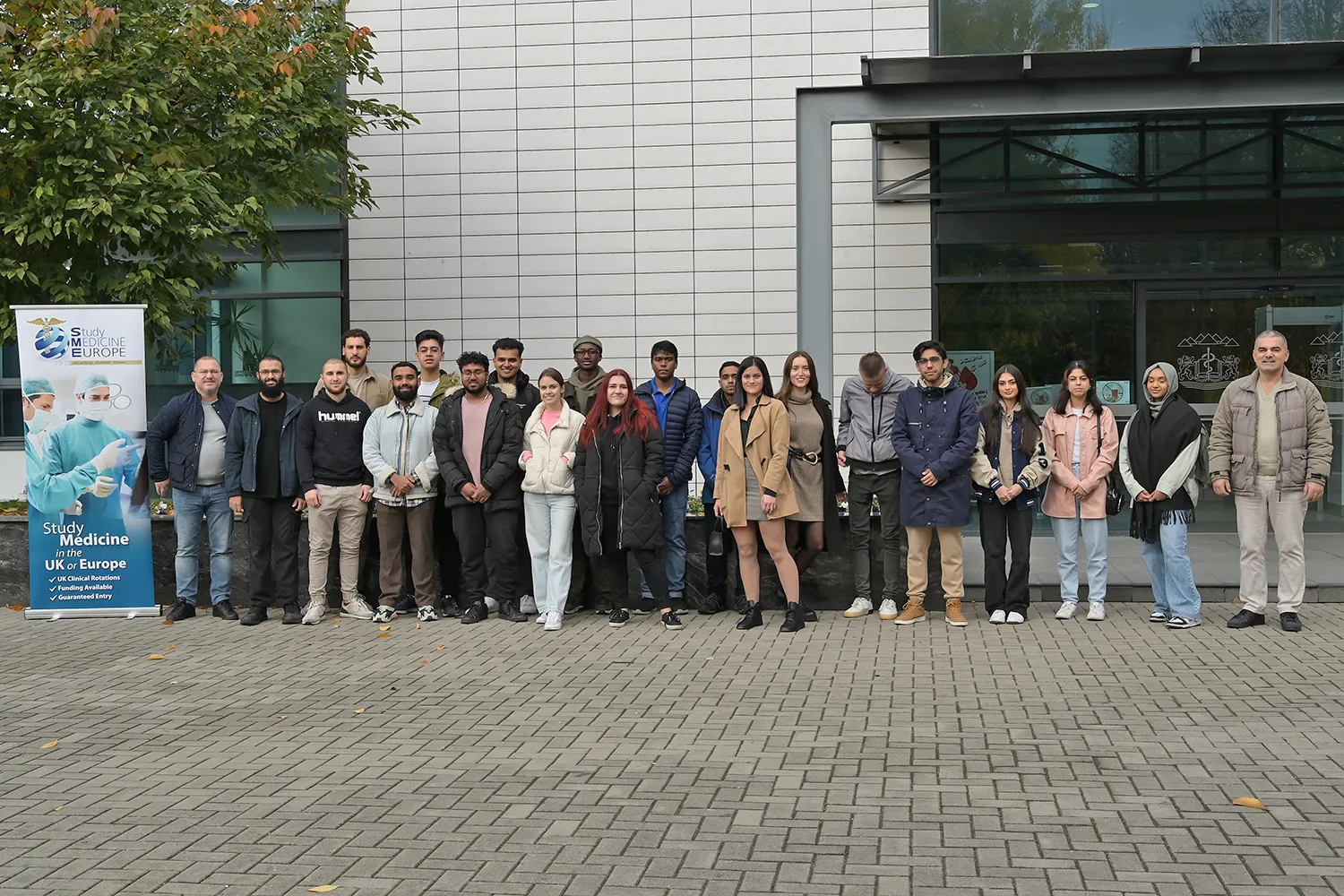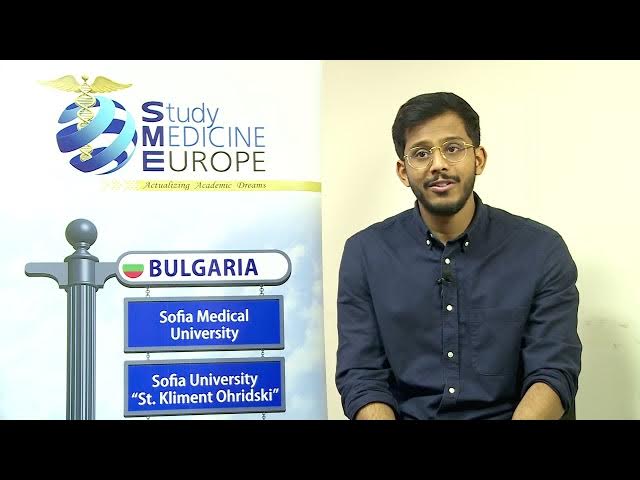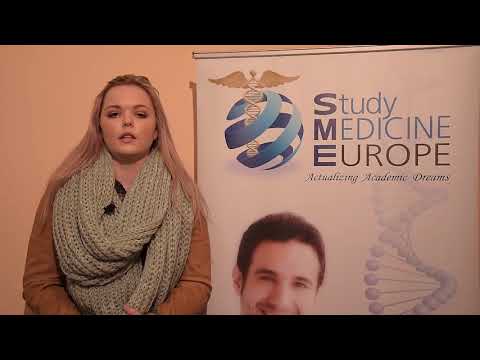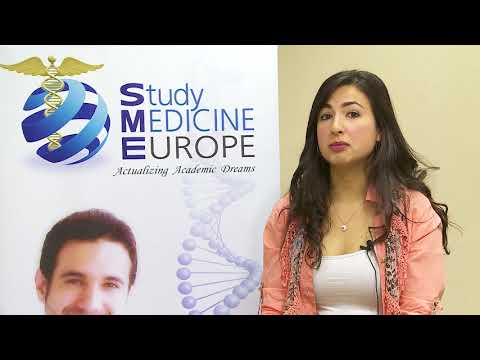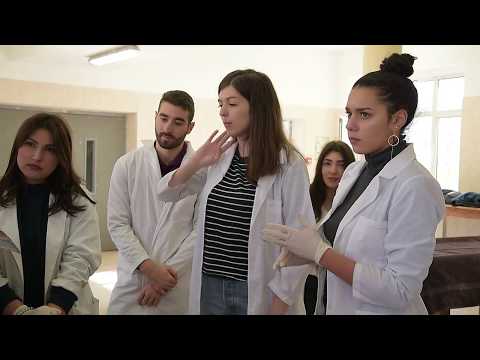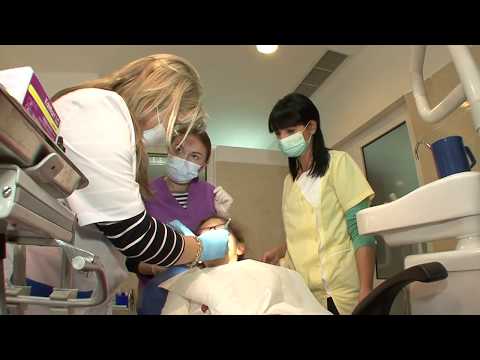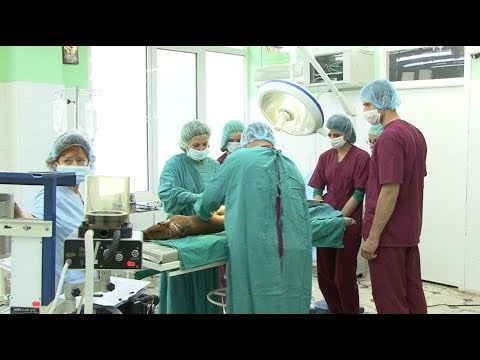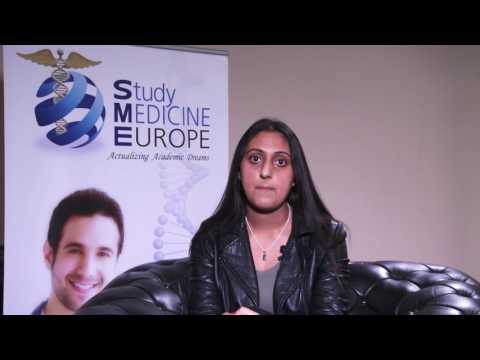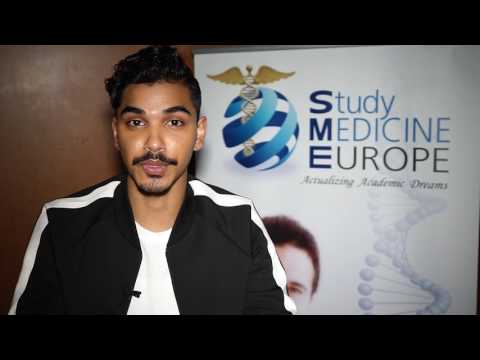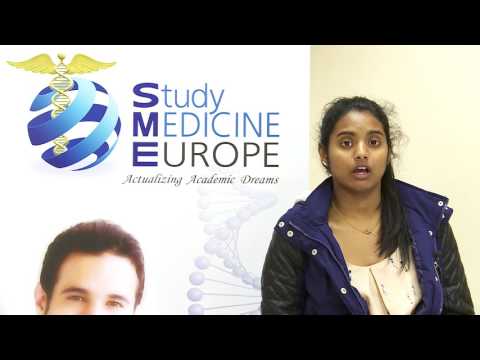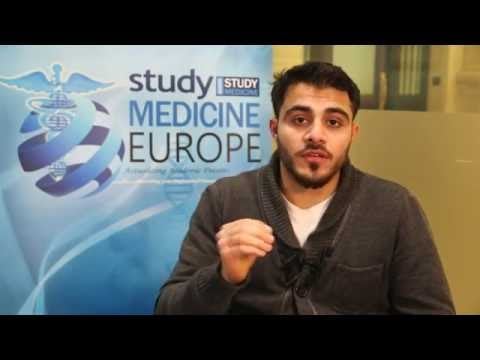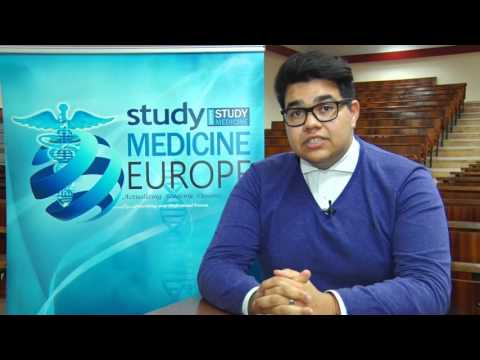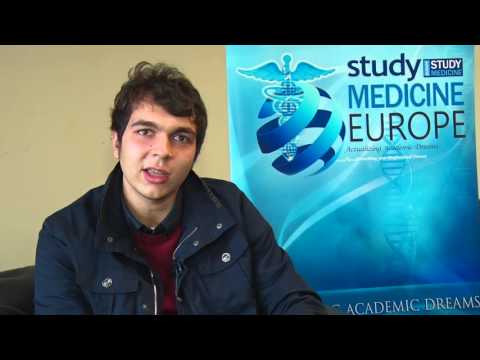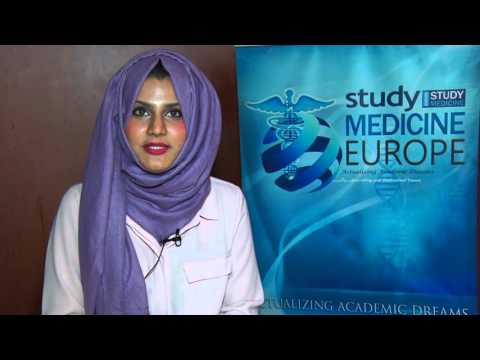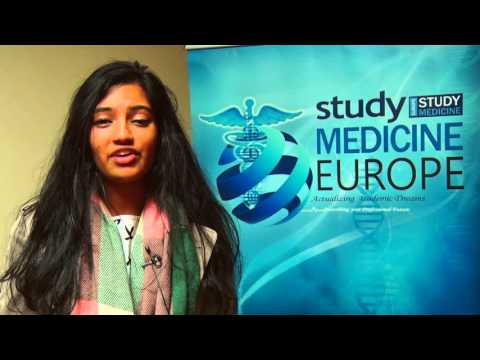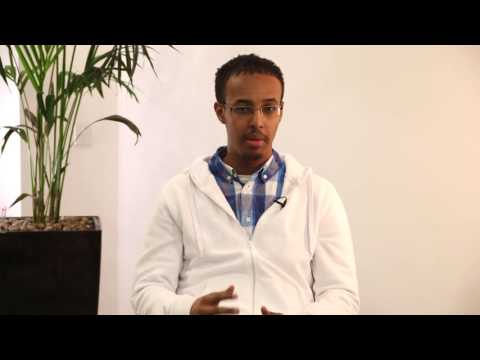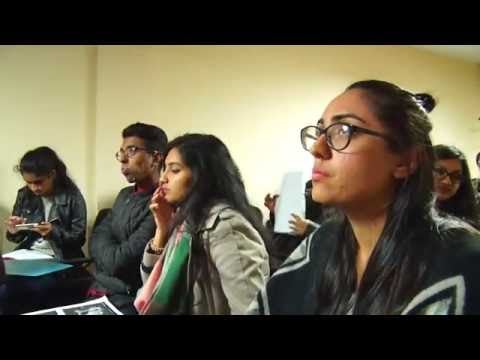Why Study Medicine in Europe in English?
Admission
No entry exams
Tuition fees
$3,500/year
Duration
6 Years
Intake
September & March
Funding
Not Available
Online Option
Available
Clinical Rotations
Up to the last 3 years
Universities to Study Medicine in English
+ What is the 6-Year Undergraduate Medicine Course?
What is the 6-Year Undergraduate Medicine Course?
- Studying medicine in Greece is an exceptional pathway for pursuing a medicine qualification with local Universities in the region offer a global medicine programme taught entirely in English.
- With over 2,500 years of medical research and knowledge acquisition, Greece sets the precedent for medical training and is a pioneering leader in physician training and medical practice.
- Aristotle University of Thessaloniki offers a 6-Year Medicine Programme that comprehensively equips students to practice medicine.
- The university was founded in 1942 in line with the ethos of Hippocrates (often referred to as the ‘Father of Medicine’) and it has been ranked in the top 100 of the global ranking list of Medical Schools.
- Degrees are awarded in accordance with the EU Directive 2005/36/E, so students can practice medicine in all EU countries without having to sit for any conversion exams and, any other country around the world.
- Armenian medical universities are internationally-accredited and are regarded as some of the finest within Europe.
- Universities in Armenia are now taking in more local and international students than ever before. For example, last year, more than 5,000 international students studied medicine or dentistry in English.
- Medical studies in the UK, the USA and Canada can be very expensive with students accumulating significant financial debts due to large loans. This is in stark contrast to Armenia where the cost of living and study is much lower.
- Students looking to study medicine in Armenia may apply to the University of Traditional Medicine in Yerevan that is offering a 6-Year Medicine Programme.
- Following the programme, graduates can specialise in their own country as their internationally-recognised degree offers them global opportunities.
- Serbia’s renowned universities have an established history of world-class medicine training.
- The University of Belgrade was founded in 1808 and is the oldest and largest modern university in Serbia. Recently, it was ranked #231 in Global Universities rankings.
- It offers a 6-Year Undergraduate Medicine in English that is comprised of 2 years of pre-clinical studies, 3 years of clinical studies and one year internship.
- Serbian university graduates currently practise medicine throughout the world and are currently working in the United Kingdom, Australia, Canada, the United States of America, and various other countries.
- Home to some of the finest medical universities in Europe, Romania offers internationally accredited degrees that are recognised worldwide.
- Medical programmes offered by Romanian universities are listed in renowned directories of international medical schools, such as the WDMS (World Directory of Medical Schools).
- The Medicine course lasts for six years and is taught entirely in English with graduates being qualified with an MD degree.
- Study medicine in Romania at: Grigore T. Popa University and “Vasile Goldis” Western University of Arad.
- All qualifications are recognised globally allowing graduates to practise in any EU member state or anywhere around the world.
- Medical studies in Georgia are offered at world-class institutions where students can complete a Doctor of Medicine (MD) qualification.
- Georgian universities offer medical courses entirely taught in English at New Vision University, Caucasus International University, Georgian National University, and Ivane Javakhishvili Tbilisi State University.
- At New Vision University, you can study partially online.
- Studying at New Vision University and Caucasus International University, you have the opportunity to complete the clinical years at hospitals in the UK, Ireland, USA, Canada and Australia, upon availability.
- Ranked among the best in Europe, Bulgarian universities attract a rising number of native and international students every year.
- Bulgarian universities are renowned for their advanced teaching methodologies with dynamic programme content involving lectures, practical training, and laboratories.
- All Bulgarian universities have well-established professional partnerships with medical clinics throughout the country and students graduate with extensive clinical experience.
- Study a 6-Year Medicine course in Bulgaria at Sofia Medical University, Sofia University ‘St Kliment Ohridski, Plovdiv Medical University, Varna Medical University, Trakia University Stara Zagora, and Pleven Medical University.
- Following graduation, Bulgarian students are qualified with a Doctor of Medicine (MD) and are licensed to practice medicine internationally.
+ How Are Clinical Rotations in the UK, Ireland, USA, Canada and Australia Organised?
How Are Clinical Rotations in the UK, Ireland, USA, Canada and Australia Organised?
- Students studying in Europe have the opportunity to complete clinical rotations for up to three years in professional medical settings outside their university campuses.
- Offers are made after matching medical student’s preferences and offered clinical rotation in teaching hospitals and clinical facilities in the UK, Ireland, Canada, the USA and Australia.
- In order to apply for the rotations opportunity, interested students are required to:
- Send the name of the department and the duration of the rotation in the specified department according to the university’s study programme as well as their CV.
- Send a confirmed application authorisation from the Professor coordinating the student’s programme.
- Placements are offered upon availability, so an early application is required.
- These international matched clinical rotation opportunities expand the scope of student’s clinical experience and prepare them for a global medicine career.
+ What are the Undergraduate Entry Requirements?
What are the Undergraduate Entry Requirements?
- Prospective medical students from all over the world can apply for programmes in medicine taught entirely in English.
- Candidates are not required to sit entrance exams and must complete application documents for the following:
- An application which includes the following details: bio, education history and course for which you are applying.
- A copy of your secondary education results with subjects studied.
- Two small photos of 4-5cm.
+ Medical Council Requirements for Recognising Medical Degrees
Medical Council Requirements for Recognising Medical Degrees
- Many of the world’s Medical Councils require that the Medical School that awarded the Doctor of Medicine degree (MD) be listed on the World Directory of Medical Schools (WDMS).
- Additionally, each region has its own requirements:
- UK
- The General Medical Council (GMC) expects a medical degree to have a minimum 5,500 Clock Hours over a minimum period of three years.
- USA
- The Educational Commission For Foreign Medical Graduates (ECFMG) requires a medical degree to have a minimum duration of four years.
- Australia
- The Australian Medical Council (AMC) maintains an additional database of Recognised Medical Schools.
- It also requires a medical degree to have a minimum duration of four years.
+ Why Study Medicine in Europe?
Why Study Medicine in Europe?
- The opportunity to study at renowned European Universities offers students exceptional academic, professional and personal prospects for studying undergraduate medicine and graduate medicine abroad.
- Students graduating with a medical degree from a European university attain a global qualification that is highly regarded and they can practise medicine internationally.
- Studying Medicine in Europe, students will be in a better position of securing employment in their home country.
Watch Our Videos
Real Success StoriesOpen DaysEntry ExamsNetworking Events
Reviews
+ 2023
2023
+ 2022
2022
+ 2021
2021
+ 2020
2020
+ 2019
2019
+ 2018
2018
+ 2017
2017
+ 2016
2016
+ 2015
2015
+ 2014
2014









